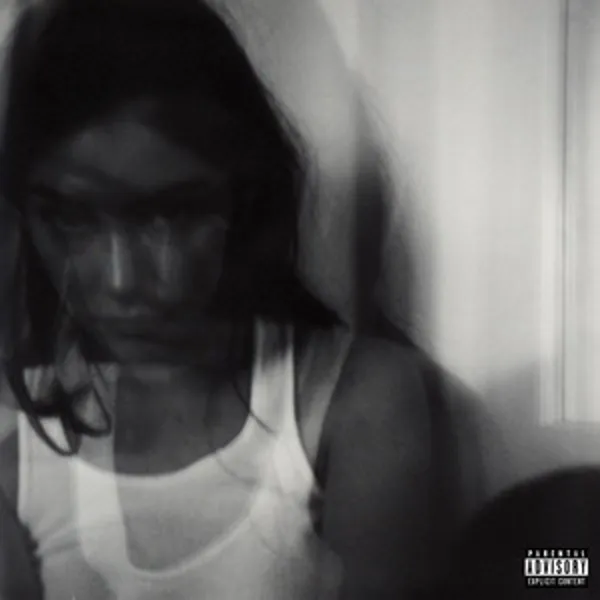REVIEW: Grace Abrams’ debut album “Good Riddance” explores complex relationships

Abrams’ debut album “Good Riddance” consists of 12 songs, with a duration of 52 minutes and 30 seconds.
Gracie Abrams is a singer-songwriter who rose to fame performing for hit-artist Olivia Rodrigo in 2022, and being the daughter of J.J. Abrams, director of Mission Impossible and Star Wars movies. On Feb. 24, Abrams released her debut album, “Good Riddance.” The album consists of 12 songs, with a duration of 52 minutes and 30 seconds.
“Best” is the opening track, greeting listeners with Abrams’ familiar vibe. The track tells of Abrams’ sincere confession and remorse for how she poorly treated a past partner. Abrams openly admits that she could have been a better person.
“You were there all the time / You’re the worst of my crimes / You fell hard, I thought ‘good riddance’ / I never was the best to you / Gave me the best of that, I was so negligent / Now, I feel terrible ’bout how I handled it,” Abrams sings.
“Full Machine” is the third track, and unlike most of Abrams’ songs, it features a drum beat less reflective of a soft bass. Abrams compares falling for someone who she should not have fallen for to an answering machine. She equates a full answering machine to who she fell for, and herself as someone who keeps calling. The lyrics describe how she cannot help her feelings despite someone not being the best influence on her.
“I’ll heal eventually / But faster if you’re next to me, next to me / I’m a shameless caller / You’re a full machine / But won’t you answer tonight / And say somethin’ nice to me? / And you don’t have to mean it / You can lie to me / But if you asked me to run away / I’d go easily,” Abrams sings.
Many of Abrams’ fans recognize “Where do we go now?” since she released the song prior to the album. “Where do we go now?” opens with a quick, repetitive beat, followed with lyrics about growing apart from a loved one and not wanting to say goodbye.
“I know I changed overnight / So I can’t blame you for fightin’ / ’Cause now I’m half of myself here without you / You’re the best in my life and I lost you / It was one-sided, hate how I hurt you / If I could, I’d have changed every feelin’ / Guess the space was the thing that I needed / But I miss you,” Abrams sings.
“I should hate you” serves lyrics of conflict in an acoustic ballad that speaks from Abrams’ heart. Due to her history with a person, she feels she should hate them for the energy and time she wasted and in the end, not being appreciated for her efforts. Despite how they treated her, Abrams cannot bring herself to detest them.
“And I wasted my breath when I tried to console you, didn’t I? / I know that I should hate you / No, you’re not even here, but you’re doin’ my head in / And I swear to God I’d kill you / If I loved you less hard / I would bend back to you if you left the door open,” Abrams sings.
The sixth track on the album is “Will you cry?” It begins with a melody of quick guitar strumming matched with harmonizing voices to compliment Abrams. The song narrates her inner questioning of how someone truly feels, and wondering if they would care if she left them behind.
“Now, I’m what you’re bored of / ‘Cause now I stop myself from holdin’ onto somethin’ / You don’t move me, I see through you / With your arms ’round me, habits go slowly / Would it not kill to say goodbye? / Will you cry if I let go?” Abrams sings.
“Difficult” expresses an upbeat feel paired with contrastingly downcast lyrics. Abrams was inspired to write “Difficult” when she realized how little she knew about life. She sings about being stuck in a spiral of depression, not knowing what to do and struggling to get out when everything feels hopeless.
“I know spiraling is miserable / I should probably go back home / Why does that feel difficult? / I hope I wake up invisible / I’d be someone no one knows / I guess I’m just difficult,” Abrams sings.
Listeners can hear Abrams’ signature style in “This is what the drugs are for.” The heartstrung musical elements compliment her lyrics. The track expresses not knowing how to handle life with the absence of an important relationship. Abrams implies that her emotions and longing for her ex-partner felt unbearable that she used drugs to numb the pain from the heartache.
“Hopefully, the high / Works to change my mind / Haven’t seen you in a lifetime / What am I supposed to do / When you used to be my lifeline? / I’ve gotten used to sleepin’ here without you / Though I’ve tried, I can’t pretend / That I don’t sit around and think about you / Look how I just lost a friend / I’m buried in your things inside my bedroom / When all I ever do is think about you,” Abrams sings.
Varying emotions expressed in Abrams’ songs bring diversity to the album that draws in listeners. The album captures the raw feelings of heartache, homesickness and comfort. Fans who listen to this long-awaited album are sure to feel touched by Abrams’ stories and songs.

